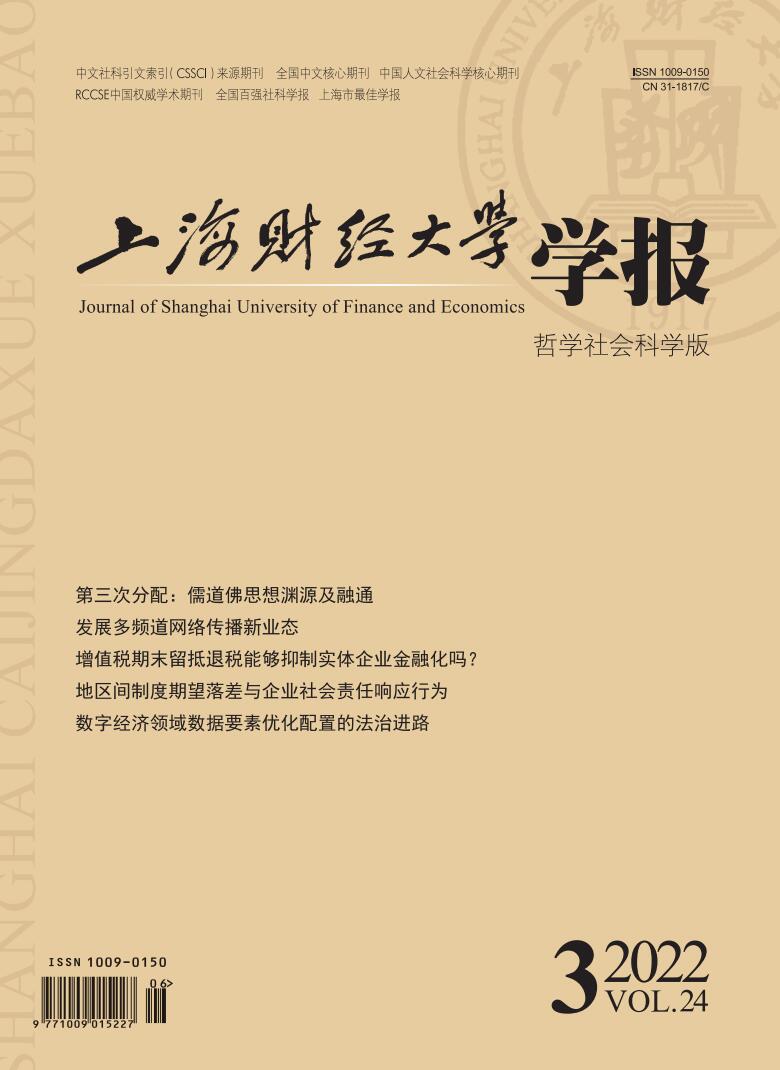The third distribution has a direct impact on high-quality economic development, political stability, social equity and justice, as well as ethical public order and good customs. It is vital to the mission of common prosperity for all people in the new era, and determines the realization of China’s second Centenary goal. The current distribution theories are mainly constructed for the primary distribution and redistribution, and lack a systematic theoretical framework for the third distribution. Learning from Chinese traditional culture can not only help to construct the localized distribution theory as well as provide support and guidance for the policy practice of China’s third distribution, but also provide Chinese theories and schemes for the worldwide distribution problems.
In this regard, firstly, this paper constructs the theoretical framework of Confucianism of the third distribution based on the theory of goodness of nature, loyalty and forgiveness, and equal-difference love. Secondly, this paper constructs the theoretical framework of Taoist of the third distribution based on the view of equalization of natural law, the view of virtue, the view of relief for the poor and those in urgent need as well as the view of good and evil retribution. Thirdly, this paper constructs the theoretical framework of Buddhism of the third distribution based on the view of origin, benevolence, and karma. On this basis, it integrates the three thoughts around the debates of similarities and differences, right or wrong, superiority or inferiority. In this process, the comparison matrix of equal-difference love and equal love is put forward.
The research results illustrate the common goal of Confucianism, Taoism and Buddhism in the efficacy of “persuading goodness” and “enjoying goodness”, as well as their different ways of “doing goodness”. The optimal strategy that can be adopted in the third distribution is not only to uphold the equality and inclusiveness of non-anthropocentrism and universalism, but also to have a subjective consciousness of responsibility and a down-to-earth realistic path.
Drawing upon the culture of Confucianism, Taoism and Buddhism, this paper constructs a localized distribution theory, which responds to the call of “writing papers on the motherland” of Xi Jinping. Meanwhile, we carry out the historical continuation and renovation of Confucianism, Taoism and Buddhism, which not only helps to inherit the excellent traditional culture, but also surpasses the traditional culture. The study makes the following suggestions: Firstly, we should carry forward the educational role of Confucianism, Taoism and Buddhism in “persuading goodness” to shape the cultural climate of “being inclined to goodness” for everyone, further forming the moral textbooks of the third distribution. Secondly, based on the thought of “enjoying goodness” of Confucianism, Taoism and Buddhism, we should abandon the narrow thinking of the binary opposition between economic value and social value in Western neoclassical economics. Thirdly, we should follow the thought of “shouldering responsibility” in Confucianism, Taoism and Buddhism to carry out non-anthropocentrism and universalism in the way of “doing goodness”.





 6109
6109  8709
8709

